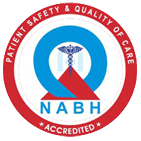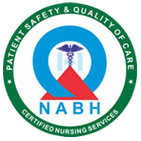Q: I'm 80 years old, and I'm always very tired and short of breath. My doctor says I have low hemoglobin, but my iron level is OK. The problem is my bone marrow is not producing. What should I do now?
You have stated that you have anemia (a low hemoglobin concentration, less than 12 g/dl) that does not result from iron deficiency. Anemia is in fact a common problem among older adults.
Anemia is diagnosed by a complete blood count. Other tests might include further blood work to evaluate iron, ferritin, Vitamin B12 levels, folic acid, and lactic dehydrogenase; and an electrophoresis of the proteins in the serum. A bone marrow biopsy and aspirate might also be necessary. This test involves insertion of a needle directly into the pelvic bone to withdraw marrow for examination under the microscope. It is a brief, safe, yet somewhat uncomfortable, procedure that can help your doctor determine the cause of the anemia.
The most common form of anemia in older adults is "anemia of chronic disease (or disorder)," also referred to as ACD. With ACD, there is sufficient iron present in the body, but the bone marrow is unable to incorporate it into the red blood cells. ACD might be associated with cancer, chronic renal failure, collagen vascular disease, or a chronic infection.
Another reason for anemia in an older person could be nutritional deficits that occur when a person loses weight. With significant weight loss, even when vitamins are administered, the person often develops anemia.
A growing problem often grouped under ACD is suppression of the bone marrow by medications. Older adults with several chronic illnesses often require multiple medications. As a matter of fact, 40% of older adults use 5 or more medications weekly; 12% use 10 or more medications weekly. Some common medications can suppress the bone marrow, causing anemia. Even if the effect from any one medication is small, the effect can be enhanced when multiple medications are given, particularly if there are other problems such as weight loss as well. Examples of medications that may contribute to anemia include ACE inhibitors such as lisinopril; ACE receptor blockers such as losartan; antibiotics such as sulfa-trimethoprim; and certain anticonvulsants.
When the underlying problem is identified and addressed, the anemia should resolve. Many times, however, the underlying cause might not be readily apparent. Some doctors offer patients a trial of erythropoietin, or EPO. EPO is an expensive medicine, available only in injection form, and might not be covered by your insurance. The government has also issued warnings that EPO may be associated with problems such as shortened survival in certain types of cancer, and increased risk of cardiovascular events when used in kidney failure.
The second most common form of anemia is iron deficiency, the one you are probably most familiar with, since many women have iron deficiency anemia as young adults from heavy periods or after childbirth. However, older adults, both men and women, are unlikely to have iron deficiency anemia unless there is a problem in the intestines, either an absorptive problem, or a loss of blood in the stool. In this case, tests must be done to discover the source of bleeding, and the iron must be replaced.
Vitamin B12 deficiency is also a common cause of anemia, and this condition might be referred to as pernicious anemia. Some people respond to high doses of oral Vitamin B12 (1000 mcg per day). If the B12 is not absorbed, then intramuscular injections are given every one to three months, depending upon the individual requirement. You can learn to do this yourself, or have someone in your family give you the injections.
Other causes of anemia in older adults include aplastic anemia, myelodysplastic syndrome, folate deficiency, thalassemia, sideroblastic anemia, and hemolytic anemia. Multiple myeloma might present with anemia, elevated calcium, and kidney failure.




